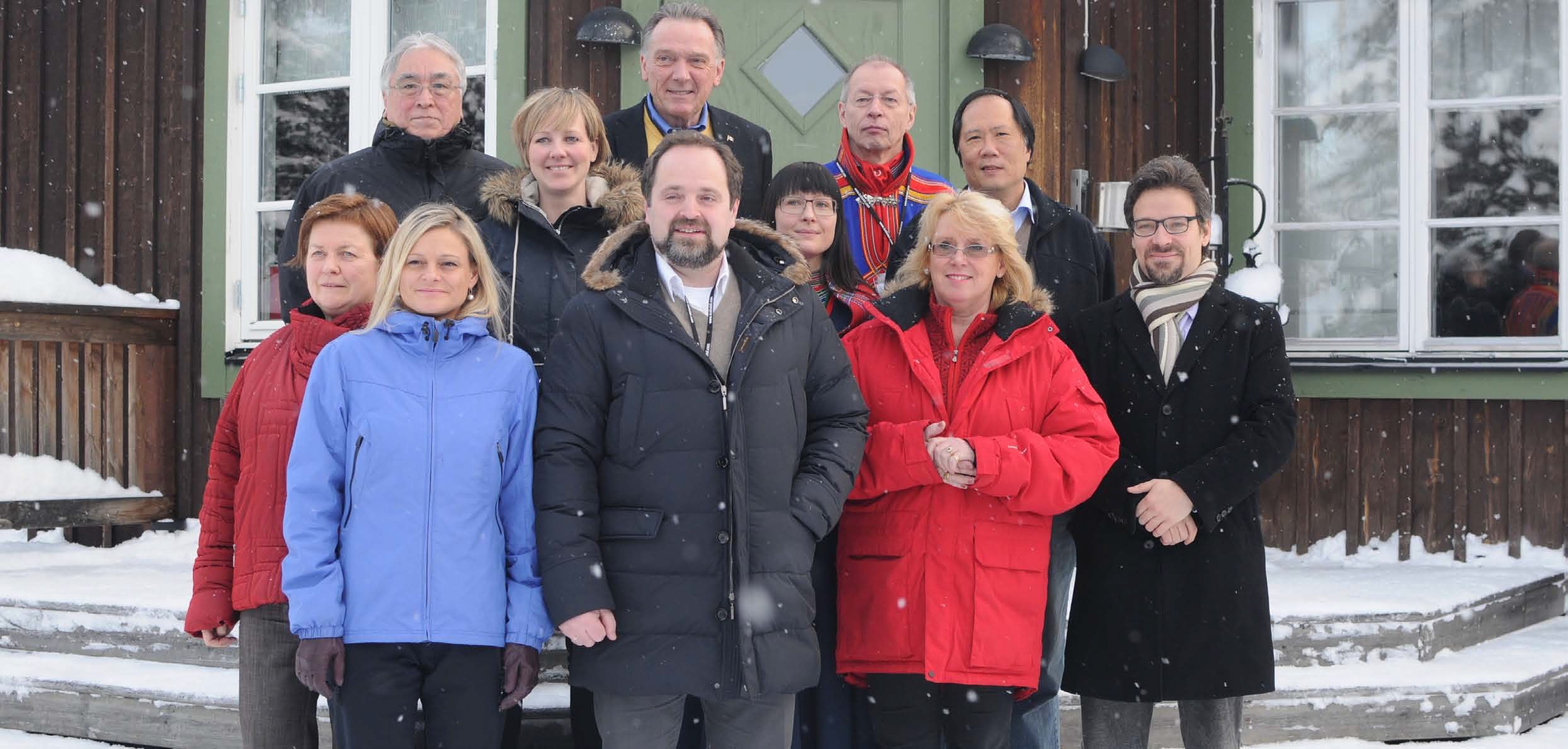Discussions during the meeting touched on reducing black carbon emissions in the Arctic and measures to safeguard biodiversity and ecosystem functions in the region. The meeting also included a science-based dialogue about how all the processes of change in the Arctic are interconnected and how developments in the Arctic are linked to changes at the global level. Other important issues on the meeting agenda included Arctic resilience and Contaminants in the Arctic.

The meeting was attended by ministers and high level representatives from Canada, Denmark/ The Faroe Islands, Finland, Iceland, Norway, The Russian Federation, Sweden and the United States of America. The meeting was chaired by the Swedish Minister of the Environment, Lena Ek. The chair's conclusions to the meeting are availalble here.
Photo: Arctic Council Secretariat
In addition to the ministers from the eight Arctic Council Member States, the meeting was attended by Arctic Council Permanent Participants (the Sami Council and the Inuit Circumpolar), representatives from various Arctic Council's working groups, and observers in the Arctic Council.
Observers to the meeting were given the opportunity to submit written statements ahead of the meeting, presenting their thoughts on the Arctic. The following observers statements were submitted:
- France
- Greenpeace (not an official observer to the Arctic Council)
- International Arctic Social Sciences Association, IASSA
- Italy
- WWF
The most important step forward at the meeting was discussions on strengthening the joint work on short lived climate pollutants and in particular reduction of black carbon (or soot) from the Arctic countries. In their final statement, ministers called for urgent action to reduce Short Lived Climate Pollutants and encouraged establishment of a process aiming for an instrument or other arrangements to reduce emissions of black carbon from the Arctic States. The most important elements of such an instrument were discussed.
The official press release for the meeting can be found here.
